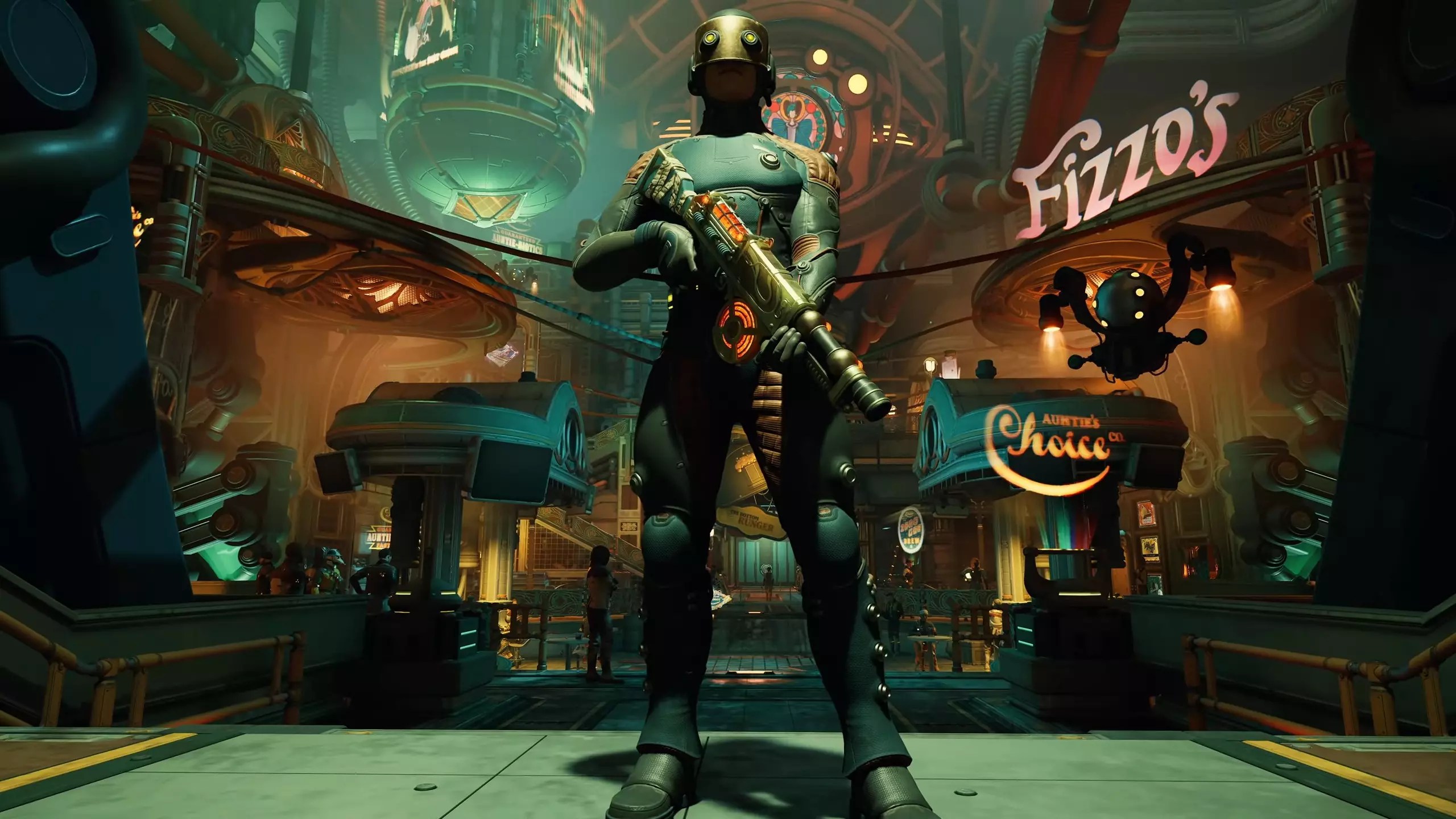In an era where video games prioritize accessibility and broad appeal, “The Outer Worlds 2” stands as a testament to the power of choice and the reward of commitment. Game director Brandon Adler’s vision challenges the contemporary norm of catering to every player demographic. Instead, he advocates for a focused approach, where the essence of the game is designed for a specific audience. This strategy does not merely serve as a marketing decision; it’s a philosophical stance rooted in a respect for player choices and consequences.
Adler’s assertion that “sometimes you have to pick a lane” resonates deeply in a gaming landscape saturated with titles that prioritize instant gratification and flexible gameplay. While many modern RPGs allow players to frequently respec or adjust character builds on the fly, “The Outer Worlds 2” imposes a critical guideline: once a choice is made, it carries weight. This resolve nurtures a deeper connection between players and their characters, encouraging a thoughtful approach to combat and interaction rather than a whimsical one.
The Allure of Permanent Choices
Central to Adler’s vision is the notion that player decisions should be lasting and meaningful. He argues that allowing players the option to respec diminishes the essence of role-playing. When changes can be made freely, it results in a loss of identity for the character and lowers the stakes for the decisions being made. This is not merely a design decision but a call to elevate the role-playing experience itself.
In many RPGs, the freedom to continually adjust one’s character can dilute the immersion. Players with the option to “swap identities” on a whim risk undermining the narrative backbone that many role-playing games strive to achieve. Adler desires that players face the gravity of their decisions, effectively saying, “This is who you are, for better or worse.” Emphasizing permanence in choices adds a layer of intrigue and consequentiality that can enhance engagement considerably.
The Role of Consequences in Storytelling
“The Outer Worlds 2” aims to provide an experience where choices are not made lightly. Adler’s insistence on the significance of player decisions results in a form of storytelling that is not just a narrative vehicle, but rather one that actively respects the player’s journey. By crafting a game that holds players accountable for their choices, it opens pathways for deep emotional connections and a sense of genuine impact on the game world.
Consider the appeal of a well-crafted narrative. In storytelling, whether through literature or film, the most compelling tales are those where characters encounter trials that shape their future. By extending this phenomenon to the realm of gaming, “The Outer Worlds 2” leaps ahead of the typical experience and invites players into a more dynamic relationship with the narrative. This commitment to crafting impactful storytelling elevates it above titles where consequences feel trivial or easily reversible.
A Game for a Select Few
Adler recognizes that this focused approach may narrow the potential player base—but curating a unique experience is the priority here. “It’s probably not a popular thing for me to say,” admits Adler, highlighting the tension between artistic vision and commercial success. Yet, this conflict is not unique to gaming; it’s a pervasive dilemma across various creative industries.
In an age where consensus often overtakes creativity, Adler’s decision to prioritize authenticity over mass appeal deserves acknowledgement. By daring to cater to a select group of players who appreciate a more profound narrative and decision-making experience, “The Outer Worlds 2” may emerge as a bold example of what RPGs can and should be. Adler’s vision showcases that games can be both commercially successful and artistically significant by creating an exclusive yet passionately engaged community.
Respecting the Player’s Time
At the heart of this philosophy is a fundamental respect for the time invested by the player. Adler emphasizes that respecting a player’s time is about making every decision matter, weaving complexity and depth into the gameplay. This respect is critical; after all, gaming is not merely about escapism but also about contributing to an immersive experience reflective of the choices made.
“The Outer Worlds 2” embodies this ethos by ensuring that every choice resonates throughout the game, thereby enhancing the quality of the experience itself. It is this acknowledgment of player agency paired with a desire to create a deeply personalized narrative that sets the forthcoming title apart from its competitors. In the grand tapestry of role-playing games, “The Outer Worlds 2” is poised to provide a meaningful journey that elevates its legacy while challenging the conventions of the genre.


Leave a Reply